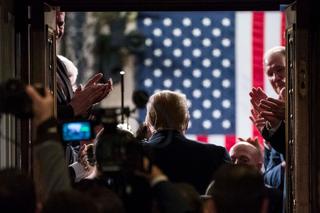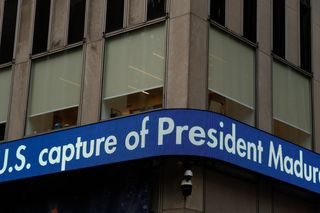"Historically, the vice president in the election does not have any impact,” Donald Trump said in July when asked about his running mate, J.D. Vance.
He went on: “You’re voting for president. If you like me, I’m going to win.”
Trump bluntly laid out what political scientists have been demonstrating for decades – vice-presidential running mates do little to move the needle in US presidential elections.
Beyond the unique disaster of Joe Biden’s performance in June, the same is often said of campaign debates, too. CNN post-debate polling found only 4 per cent of viewers said this month’s match-up between Kamala Harris and Trump changed their minds about who they will vote for in November.
Yet in an election that is likely to be won or lost on essentially the polling margin of error, a 4-percentage point shift is hardly inconsequential. Moreover, this truncated campaign period has been driven by subtle, often sudden, shifts in momentum that have caused Harris and Trump to each command control of the media cycle in back-and-forth bursts.
This means every moment counts. And raises the stakes for each party’s vice-presidential nominee in Tuesday night’s (Wednesday AEST) debate.
The chance to reach even a sliver of undecided voters in US prime time is one that neither campaign can afford to waste. So, what will Tim Walz and Vance hope to achieve in this week’s face-off?
The presidential debate laid bare both campaigns’ weaknesses.
Harris was effective at baiting Trump into descending into rabbit holes rather than remaining focused on the policy areas where he boasts a sizeable polling advantage – such as the economy and immigration.
But for voters eager to learn more about Harris – as almost a third said they were – the debate did little to sketch out a fuller picture of the Democratic nominee and the policies driving her campaign.
While Harris was notably strong on the issue of abortion, she outright diverted awkward questions – and her messaging on the nebulous “opportunity economy” likely fell flat among Americans currently struggling with historic cost-of-living pressures.
Walz has proven his ability to cut through media noise as a robust messenger for the Democrats – an asset that no doubt stood out in his running mate CV.
It’s very likely that in the debate Walz will be quick to characterise Vance as “weird” and leverage the now-infamous phrase he coined to position Republicans as extreme and out of touch.
But Walz could also take the opportunity to deliver a more convincing argument for the Democrats’ plans to tangibly improve American lives.
The former congressman spent over a decade representing a previously Republican-held district in the US House of Representatives. Walz can draw from his retail politics experience and frank communication style to speak directly to disaffected Republican voters – and frame the Harris campaign’s economic policies as a commonsense response grounded in genuine care for the American people.
As Republican messaging that Harris is a “San Francisco radical” appears to be gaining traction among some Americans, Walz is also well positioned to tackle these criticisms head-on, based on his own experience defending his progressive record as Minnesota governor.
Just try not to be weird
When Trump announced Vance as his running mate at the Republican National Convention just days after the former president narrowly survived an attempt on his life, the nomination appeared almost immaterial in an election that was his to lose.
But since Harris’ jolt to the race, Vance’s fortunes have taken a nosedive.
The Ohio senator has made headlines week after week, such as for his controversial comments bemoaning so-called “childless cat ladies” and suggesting that Americans with children deserve greater voting power than those without them – moments that risk alienating women voters in particular.
Vance’s current approval ratings rank the lowest of any running mate in modern US electoral history. Some are even questioning whether his spot on the ticket could be the rare instance of a number 2 hurting their presidential candidate’s chances on election day.
For Vance, perhaps his overarching goal for the debate will be to do something that has so far proved difficult – appear likeable to the moderate voters that will ultimately decide the election. Key to this success will be whether Vance doubles down on talking points that excite the MAGA base, such as baseless claims about Haitian immigrants, or if he mounts substantive policy arguments that can appeal to the middle.
Vance has a clear opportunity to prosecute the Republicans’ case on immigration and the economy – two issues that are front-of-mind for voters.
On both, he would be wise to tie Harris to the perceived failings of the Biden administration, which is a line of attack that appears to be resonating. Most Americans think that Harris bears at least some responsibility for rising prices and Biden’s record on the border. Voters (61 per cent) also overwhelmingly want change but think that Harris’ candidacy represents more of the same (55 per cent).
By the time Trump finally mounted this argument in the closing statements of the presidential debate – asking, “Why hasn’t she done it? She’s been there for three-and-a-half years.” – it was too little too late.
As it stands, Harris and Trump are fighting for control of the same narrative. Both are attempting to characterise the other as extreme while shaking off their own incumbency status and painting their opponent as the root cause of the country’s problems.
When Vance and Walz go head-to-head for the first and likely only time, both running mates will have the opportunity to make small but crucial ground in this messaging battle as election day edges closer.








